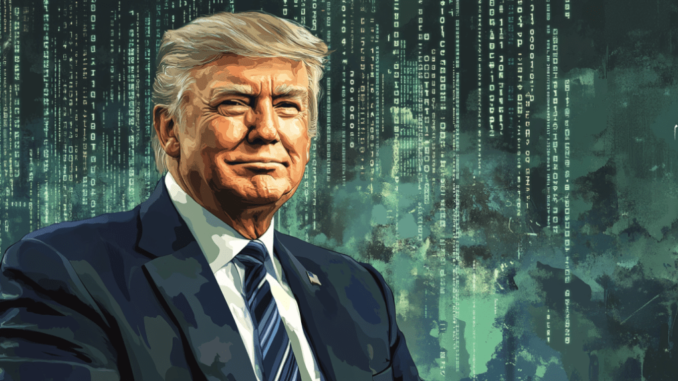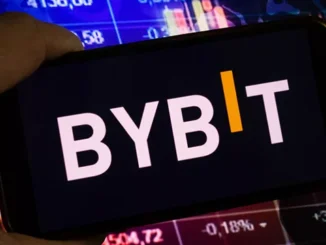
Subscribe to our daily and weekly newsletters for the latest news and exclusive content on leading AI coverage in the industry. Learn More
President Donald Trump introduced an ambitious initiative to transform America’s artificial intelligence realm this week, merging a colossal $500 billion private-sector project with broad executive actions that eliminate regulatory hurdles — while simultaneously igniting controversy regarding both funding assertions and ecological concerns.
The focal point of Trump’s AI strategy, referred to as “Project Stargate,” unites an unlikely coalition of technology titans: Sam Altman’s OpenAI, Larry Ellison’s Oracle, and SoftBank led by Masayoshi Son. This initiative aims to develop up to 20 enormous AI data centers throughout the United States, with the first site already under construction in Abilene, Texas.
“This is a powerful assertion of faith in America’s capabilities,” Trump proclaimed during the White House announcement. However, the audacious initiative promptly encountered skepticism from an unforeseen source — Trump’s own advisor and technology billionaire Elon Musk.
Elon Musk challenges Stargate’s $500 billion funding as OpenAI competition escalates
“They don’t actually possess the funds,” Musk tweeted on X.com (formerly Twitter), asserting that SoftBank had secured “well under $10B.” This public confrontation between Musk and Altman, once collaborators turned competitors, underscores the intricate dynamics within Trump’s tech coalition.
Altman rapidly refuted Musk’s assertion, inviting him to tour the Abilene project while pointedly remarking that “what is beneficial for the nation isn’t always what’s advantageous for your enterprises” — referring to Musk’s rival AI endeavors.
They don’t actually have the money
— Elon Musk (@elonmusk) January 22, 2025
Industry experts observe that the funding framework remains unclear. While the initial promise is $100 billion, the trajectory to $500 billion seems to depend largely on forthcoming fundraising and market conditions. Microsoft CEO Satya Nadella, whose firm is conspicuously absent from the primary announcement despite its partnership with OpenAI, provided cautious endorsement: “All I can say is, I’m committed to my $80 billion,” he stated to CNBC at Davos.
Emergency powers and deregulation: Trump’s plan to expedite AI infrastructure
The initiative coincides with an executive order that fundamentally alters the federal government’s approach to AI advancement. The order prioritizes expedience over regulation, with Trump announcing he will leverage emergency powers to accelerate power plant construction for the energy-intensive data centers.
“I’m going to get the green light under emergency declaration. I can finalize the approvals myself without enduring years of delay,” Trump informed the World Economic Forum. This strategy signifies a dramatic shift from the Biden Administration’s focus on AI safety protocols.
Environmental issues are significant. While the Abilene facility intends to utilize renewable energy, Trump’s order permits the data centers to “utilize any fuel they choose,” including coal for backup energy. This has alarmed climate advocates, who caution about the enormous energy demands of AI infrastructure.
Corporate DEI programs conflict with White House policy as tech behemoths navigate the Trump Era
The initiative also faces potential inconsistencies with Trump’s other policy priorities. Many of the participating corporations uphold diversity, equity, and inclusion (DEI) programs that conflict with Trump’s day-one executive order terminating such initiatives within federal agencies.
The initiative signifies a notable paradigm shift in America’s approach to technological advancement. While prior administrations meticulously balanced innovation with oversight, Trump’s methodology essentially discards the regulatory framework in favor of a fast-paced and rectify-later strategy. This sets the stage for an unprecedented experiment in AI development: Can Silicon Valley’s largest players, unencumbered by regulatory limitations but constrained by new societal restrictions, fulfill the promise of American AI supremacy?
The contradictions are hard to overlook. Trump is simultaneously designating AI development as a national crisis while imposing constraints on the very firms constructing it through regulations on their internal practices. Tech giants like OpenAI and Oracle must now navigate an increasingly tight pathway — rushing to construct vast AI infrastructure while potentially dismantling their DEI initiatives that have become ingrained in their corporate values and hiring processes.
More troubling for AI researchers is the lack of safety protocols within this new framework. By prioritizing speed and scale over thorough development, the administration risks repeating the missteps of past technological revolutions, where unanticipated consequences emerged only after systems became too entrenched to modify easily. The stakes with AI are arguably much higher.
America’s AI wager: A contest against China with unpredictable outcomes
For now, the technology sector seems prepared to navigate these contradictions in exchange for unparalleled support for AI infrastructure advancement. Whether this gamble pays off may decide not just the future of American AI, but also the configuration of the global tech landscape for many years to come.
The stakes couldn’t be higher. As China pursues its own assertive AI development, Project Stargate signifies America’s most significant wager yet on preserving its technological advantage. The question lingers: Will this ambitious approach create the “golden age” Trump envisions, or will regulatory rollbacks and internal disputes thwart its bold objectives?







Be the first to comment